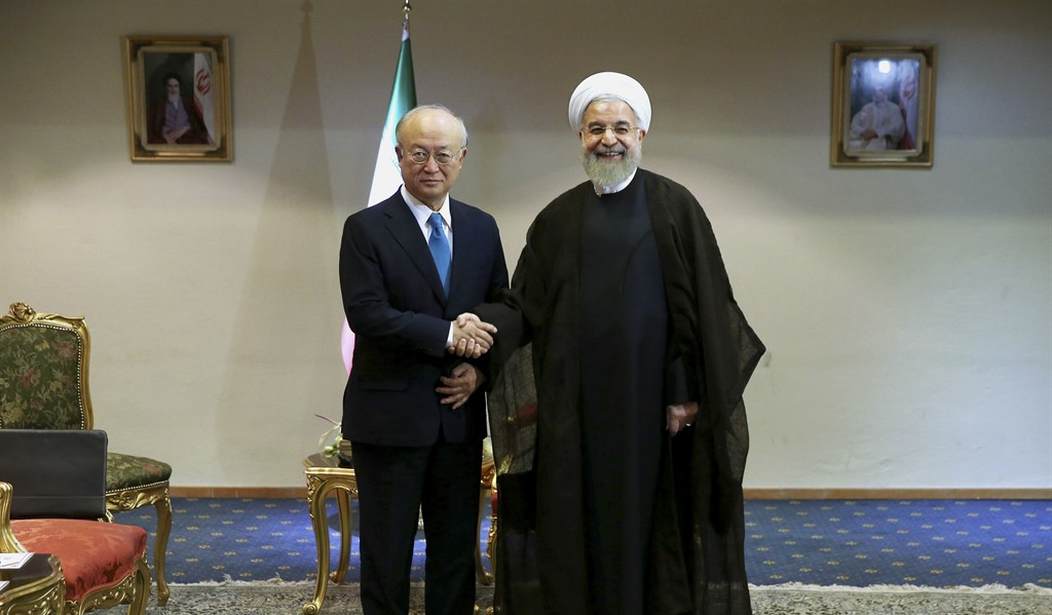In around 100 days America will be witnessing a crucial election. In the meantime, much will be done on both sides of the national divide, and this year we may see more than the usual political maneuvering in the run-up to this election.
Regardless of the outcome, the next president will face the same unique national security challenges. The Middle East is in a greater crisis than ever before and according to various analysts, it is heading toward anarchy. The scenes of defenseless people getting killed in Syria have only grown more painful over the past year, even as they have become less prevalent on our TV screens. Islamic extremism and the resulting terrorism is now targeting Western Europe, America and the Middle East with unprecedented barbarity, and there is no easy response to it.
The issue of Islamic extremism brings to mind one of our main foreign policy challenges: Iran.
This is a country ruled by a theocracy that plays an active and destructive role in all major wars in the Middle East, from Syria to Iraq to Yemen. Tehran is known as the main state sponsor of terrorism across the globe, as well as being one of the originators of modern extremist Islam. And despite the nuclear agreement with the international community, Iran continues its provocative gestures toward the Western world, for instance by test-firing its ballistic missiles.
In considering future US policy toward such a totalitarian regime, it is imperative to consider whether there exists an alternative – a serious and credible opposition to the existing government. The answer, in the case of Iran, is clearly “yes.”
Recommended
On July 9th in Paris the Iranian opposition coalition, the National Council of Resistance of Iran (NCRI), held a massive rally in which around 100,000 people from all over the globe took part. An unprecedented bipartisan American group of senior dignitaries and former military commanders attended the gathering, as did hundreds of European dignitaries. And perhaps the most significant part of this rally was the presence of Saudi Prince Turki al-Faisal, who stood before the Iranian opposition and endorsed its call for a regime change for the first time this year.
Turki’s speech conveyed a strong message of regional unity. The message of the rally as a whole was that this unity can help Iran to achieve freedom through regime change by the Iranian people and their organized resistance. Insofar as the rally demonstrated international consensus regarding the legitimacy of the NCRI’s cause, it also showed that there is indeed a domestically organized and globally recognized force for change within Iran.
The seriousness of this resistance movement was made more obvious by the Iranian regime’s hysterical response to the NCRI rally. Immediately after the “Free Iran” gathering, a large number of Iranian officials including the first vice president, foreign minister, judiciary chief and to the spokesman for the Revolutionary Guards lashed out at France for hosting the event, at Western politicians for supporting it, and at the Saudi government for apparently raising the banner of regime change.
In the past, the Iranian regime has attempted to dismiss the resistance movement as insignificant. But if Tehran has no concerns about its opposition and the opposition has no impact in Iran, then what has motivated Tehran’s aggressive response to a peaceful meeting held many thousands of kilometers away?
The truth is that this movement has roots deep inside Iran. About 120,000 members of the People's Mojahedin Organization of Iran (PMOI or MEK), men and women, and all Muslims, were executed as they refused to succumb in the face of the Ayatollahs Islamic extremism, and as they persisted in defending human rights and democracy. Subsequently, the effort to destroy the opposition came to involve a campaign of demonization and the systematic spread of lies about the group.
The PMOI is the main constituent of the National Council of Resistance of Iran which is headed by Maryam Rajavi, a Muslim woman with deep anti-fundamentalist beliefs. Mrs. Rajavi is an effective leader in coordinating pro-democracy Iranians, especially the youth and women, in campaigns against the religious fascism ruling Iran.
Iranians demand change. And Tehran’s reaction to calls for such change demonstrates that the ayatollahs’ understand how near at hand it is. A democratic and non-extremist Iran is the guarantor of peace and stability in the entire region, promising good economic relations and the region’s achievement of its maximum potential. It will improve development, growth, and cooperation with the West. And once this has been achieved, we in the West can focus our regional efforts on investments and transactions, instead of the impossible task of trying to stabilize the region through short-sighted military interventions.
Let us hope our next president is willing to adopt a new approach to Iran and support an era of domestically-fostered stability. More than ever before, both Iran and America are eagerly awaiting a change in policy. And with adequate coordination between the next administration and the existing Iranian resistance, both nations can achieve what they desire.

























Join the conversation as a VIP Member